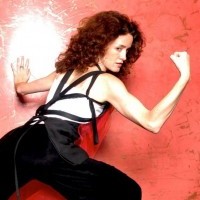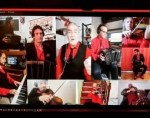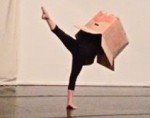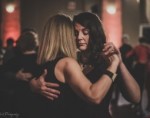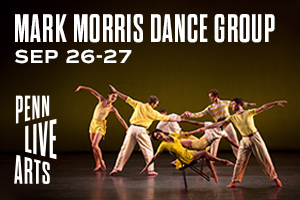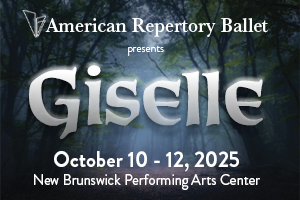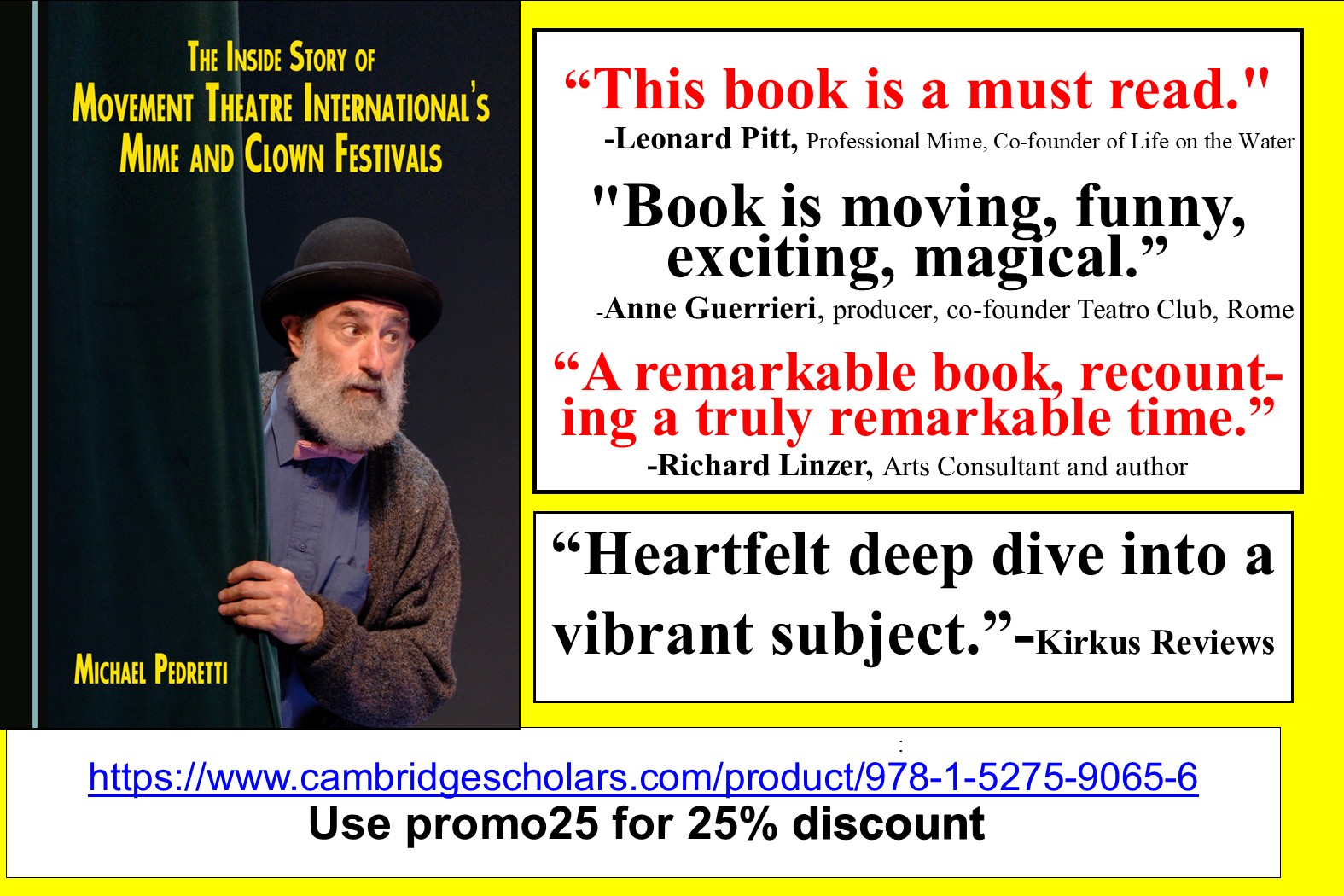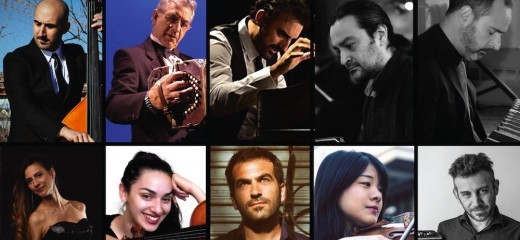
Tango’s New Golden Age: Highlights of the 2019 Philadelphia Tango Fest
by Carolyn Merritt
The Philadelphia Argentine Tango School presents its ninth festival on Memorial Day Weekend, May 24–27, at the Lithuanian Music Hall Association in Port Richmond. Over the course of four days, tango enthusiasts and newcomers alike can choose from 34 workshops with 15 different instructors, nightly milongas (social dances), free offerings like icebreaker socials, chair massage, and more. A nearly annual event since its premiere in 2010, the festival has evolved alongside the dance: electronic tango band Tanghetto headlined the inaugural event, and this year features the debut of a new tango orchestra at the Sunday evening milonga.
I recently sat down with Meredith Klein, executive director of the school and an old friend, to chat about the festival, the school, and tango’s continuing evolution. Below are edited excerpts of our conversation.
Carolyn Merritt: Can you talk about some of the highlights of this year’s festival?
Meredith Klein: The biggest highlight is the debut of Típica Messiez, a new tango orchestra that will play live at the Sunday evening milonga. The number of tango musicians of the highest quality living in the U.S. keeps expanding, and we’ve been lucky to form relationships with many through our live music events (at milongas and through the Fishtown Salon Concert Series). We’ve been working with pianist Emiliano Messiez for some time now, and a while ago we started talking about launching an orquesta típica, a tango orchestra with at least three bandoneons. In the case of this orchestra it will be four bandoneons, four violins, double bass, and Emiliano on piano. It’s expensive to move such a big group around, and as far as we can determine there’s not another professional orquesta típica of Argentine tango musicians in the U.S. Two musicians are flying from Argentina for the debut, and the orchestra is sponsored by the general consulate of Argentina in New York.
CM: Is there support for this?
MK: We have a campaign on Fractured Atlas, and we’re halfway there. It’s a hybrid campaign to support this orchestra and the Orquesta Romántica Milonguera, which just won best tango orchestra in the world at the Premios Tangos (tango awards ceremony in Buenos Aires). They will visit Philly in September.
CM: Are they also a full orquesta típica?
MK: Yes, they have three bandoneons, three violins, piano, and a female and male singer. They’re a really tight orchestra with a sound that is uniquely theirs.
CM: This is a big moment for tango in Philadelphia.*
MK: I’m starting to use the term ‘New Golden Age.’ Because the birth and the culmination of tango’s Golden Age (1920s–1950s) had everything to do with orchestras playing for dancers, the music and the dance were united in that moment. There was enormous appreciation and respect going back and forth, dancers followed their favorite orchestras, and the orchestras optimized their music for dancing. Now the two trajectories are finding each other again. Rather than bands that are looking backward or playing in the style of Golden Age music, you have a much bigger, more diverse scene. New tangos are being composed again. And I see that we can be part of that, which is thrilling to me.
CM: What is the point of a festival? How do you situate yours in relation to others within the larger global tango scene?
MK: The moments that have most connected me to tango are the moments of real immersion, the times when all that matters is the dance and the music and the ability to create connection with one person after another. Those moments of transcendence are what I remember and what feed me long-term in the dance. A festival provides the opportunity to be in those moments, and that’s what we miss outside Argentina. There are a handful of other communities where that is possible—New York and Istanbul, for example—but not many. So we give people the chance to live tango for several days and within that to have lots of options. There are 34 different workshops with 15 different teachers, six are for partners only, four are for absolute beginners, there is one class each in women’s and men’s technique, and many generalist offerings. And the orchestra is being launched in the moment and will be streamed live by USALA.
CM: Within the festival classes, can students dance the role they prefer?
MK: I try to work it out so that people can do what they want. We ask teachers to set up a rotation so that everyone has an opportunity to dance, and to dance the role they prefer. Our experience over the past five years is that there are actually more men taking classes. When you add to that all of the women leading in the tango community, you often have more leaders than followers in classes. So ladies (and men who want to learn the follower role), this is your moment!
CM: How do you approach accessibility in an event like the festival?
MK: So much of a tango festival is about reunion, and it can be hard to meet people and get dances if you are new or shy. We offer free icebreaker social events. I also encourage everyone to take the pre-milonga classes, where they can meet people, and to show up when the milonga starts, when the floor and room aren’t yet packed. And I hire some dancers whose job is to find people who are sitting and invite them to dance. We also have free line-of-dance training workshops this year. On the one hand, I don’t like the idea of events that are highly policed, but on the other hand, when the floor is chaotic, the creativity, spontaneity, and focus on one’s partner take second place to disaster control.
CM: If the Golden Age was a moment when tango was a dance of the masses in Buenos Aires, and the New Golden Age is a moment when those masses are more broadly dispersed, how does inclusion fit in? How do you move towards “tango for all”?
MK: I think tango is fertile ground for inclusion because of the tendency of experienced dancers to dance both roles. In Philly, it’s common to see two women dancing together. Changing roles inside the dance isn’t inherently linked to sexuality, so I think the role distinctions have already been broken down. I hope that makes it easier for LGBTQ dancers to enter. We’re also excited about the return of Philly Queer Tango, a new monthly event at the studio.
CM: And what about race and class?
MK: What is remarkable about the tango community is the diversity in age and country of origin. Most of the time in the studio, there are more people born outside of the U.S. than in. Our students range in age from 18 to 85, and we’re trying to start a kids’ tango class. I hope that diversity is ground for other kinds. We offer free First Friday classes 12 times a year, plus other free events around the city, and we offer work exchanges and internships. We’ve done events at schools, and whenever we have a chance to reach more young people or to connect with disenfranchised communities, we’re willing to change the pricing structure to make it more accessible. The other main barrier is feeling comfortable in the environment. It’s a work-in-progress.
CM: Any closing thoughts?
MK: What is clear is that it’s a huge act of devotion and love—the efforts of tango organizers around the world, even in Argentina—because most of us have no government support or help. The festival and the school are possible because of a lot of individual people who really love tango.
*Philadelphia is also home to renowned tango music ensemble, Oscuro Quintet, founded in 2006.
Registration for the 9th Philadelphia Argentine Tango Festival is available online at discounted rates until midnight on May 20, after which entrance to individual events will be sold at the door only.
9th Philadelphia Argentine Tango Festival, Philadelphia Argentine Tango School, Lithuanian Music Hall Association, 2715 E. Allegheny Avenue, May 24–27.
By Carolyn Merritt
May 14, 2019

